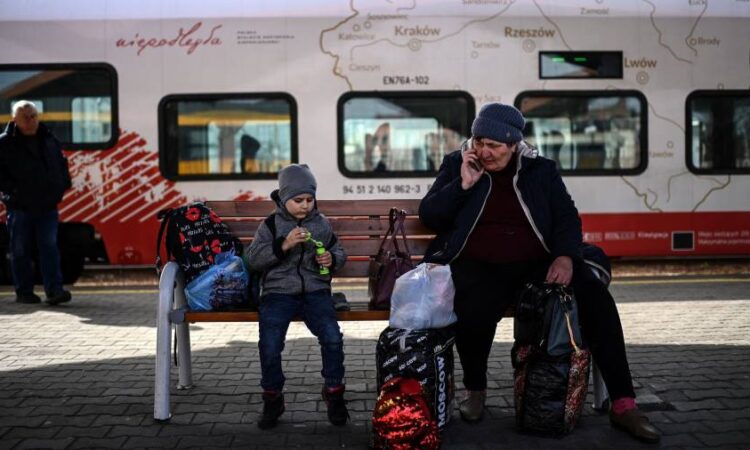
The writer is a columnist at Le Monde and fellow of the Robert Bosch Academy in Berlin
Determined to go down to the wire in their fight with Brussels over the rule of law, Poland and Hungary have had to take an unexpected factor into account: the war in Ukraine. Inflation, rising public spending and uncertain financial markets have added pressure on them to find a way out of the dispute which has blocked much-needed EU pandemic recovery funds.
The stakes for Poland go well beyond domestic fiscal challenges. Finding an agreement with Brussels over the rule of law would remove a major hurdle to the country’s standing in the European Union. The Russian aggression on its doorstep has had a profound impact on Poland’s role in Europe and endowed Warsaw with a new mission.
A frontline state, Poland is at the centre of the massive logistical effort by the west to bring military and humanitarian aid to Ukraine. With the closure of civilian airspace, almost all roads and railways to Kyiv from the west now go through Poland. Since February, over 8mn Ukrainians have crossed the border; 2.5mn now live in Poland. This makes it “a binational state”, says Piotr Buras, an expert with the European Council on Foreign Relations — a novelty for a country notoriously reluctant to welcome immigrants.
Having for two decades warned its European partners about Russian revanchism, Warsaw now finds itself on the right side of history. Polish officials note with some satisfaction that Paris and Berlin, having at times characterised the Poles as hysterical, are finally closer to their position. “The discussion started about delivering helmets to the Ukrainian forces, now we’re talking Patriots”, says a senior Polish diplomat, referring to the recent German offer to station the sophisticated missile defence system in Poland.
His government wants to go even further. Planning to bring its defence budget to 3 per cent of gross domestic product, it has embarked on a monumental programme of weaponry ordered from the US and South Korea. A senior Nato official recently commented that the alliance should give some thought to the prospect of Poland building the strongest army in Europe.
Never, since it freed itself from Soviet domination in 1989, has Poland enjoyed such an opportunity to seize its rightful place in Europe. Like other post-Communist countries, the difficult transition to a market economy and a functioning democracy made it feel second class in an EU led by Germany, France and the UK.
Now could be Poland’s moment — if only it decided to play by the rules. Two disputes overshadow Warsaw’s newly acquired clout: the assault on the rule of law by its Eurosceptic rightwing government and the shameful, relentless attacks waged on Germany by the leader of the Polish ruling Law and Justice party (PiS), Jarosław Kaczyński, a bitter 73-year-old demagogue.
A solution to the first issue seems to be in the works: hurt by a 17.4 per cent inflation rate, the Polish government badly needs money from the EU recovery fund to finance its social and defence spending and keep its voters grateful at next autumn’s general election.
Stopping the anti-German campaign may prove trickier. Kaczyński has been using it as an electoral tool, portraying the opposition leader Donald Tusk, the former prime minister and president of the European Council, as a German agent. The recent spat over the offer of Patriots by Germany was a case in point. After the Polish government accepted Berlin’s proposal, Kaczyński rejected it, casting doubts on the German military’s will to fight Russia, and said that they should be sent to Ukraine instead, embarrassing the German government. Berlin maintained its offer and Polish president Andrzej Duda thanked his German counterpart, Frank-Walter Steinmeier, for it.
Duda may have saved the day on the Patriots, but he failed to do so on another contentious issue: second world war reparations. PiS is demanding that Germany pay €1.3tn, roughly a third of its GDP. This hostility betrays the old suspicion, inherited from Poland’s tormented history, that Germany may always end up dealing with Russia over the heads of the countries “in between”.
Paris and Berlin’s prior leniency towards Vladimir Putin has dangerously deepened Warsaw’s scepticism about western Europe’s reliability. Yes, Poland’s distrust of the Russian president was right. But as a seasoned observer of the Polish-German relationship notes, “it is not enough to be right: you have to be successful. And to be successful, you need partners.” To become a major player in an evolving EU, Poland should stop attacking its partners and drop its obsession with the past.






